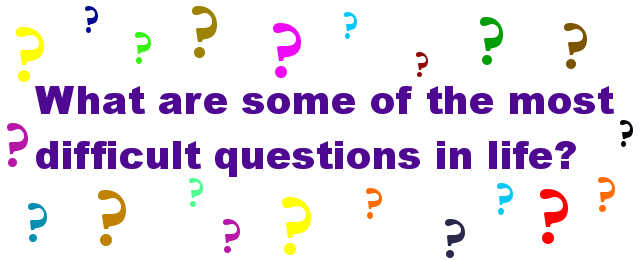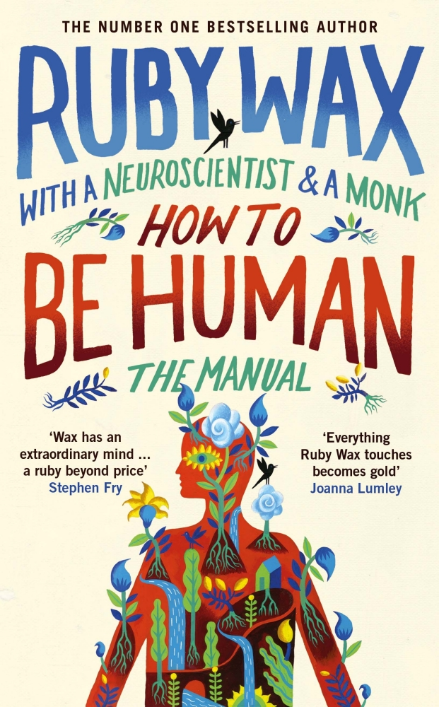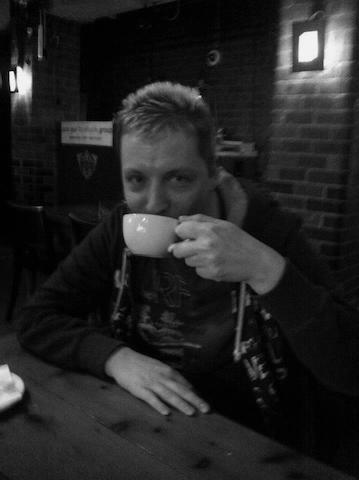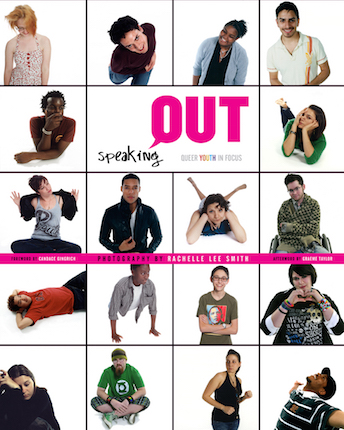
Here are some of the most difficult questions in life, along with my current partial answers to them. None of these complex questions have simple answers. If you have a better answer than the one I have, or would like to share your answer to these questions, please leave a comment below.
Who I am is fluid rather than fixed and changes constantly. It encompasses my thoughts, feelings, intentions, actions, omissions, behaviours and my soul. Who I am changes as quickly as each encompassed element can change.
Consciousness is a result of billions of neurons in the brain firing electrical signals to other neurons. Our body allows us to sense the world (through taste, sight, touch, smell, sound and psychic intuition) and then create thoughts and feelings based on the now, memory and past experiences, dreams and hopes for the future.
I have no idea what the meaning of life is. But I’ve got a feeling that it’s different for every life. I do know that you should decide on the purpose or ideally purposes of your life.
Purposes may include: dedication to family/friends, goals/achievements of your own, contribution to the wellbeing of others, learning/studying/growth, to create or destroy, to consume and enjoy, to travel, to adventure and experience, to improve humanity, to love, the list goes on and on.
Perhaps the question should read: what inspires creativity? A large number of things can inspire creativity, including: nature, research, other people’s creative works (art, music, literature, sculpture, etc.), curiosity, questions, past experiences, daily life, failures, logic/illogic, other people’s ideas, emotions, procrastination, through play, again the list goes on and on.
Pagans are polytheistic, meaning that they worship many Gods and Goddesses. I personally believe that these Gods and Goddesses represent humanistic aspects of a Divine Energy.
This Divine Energy is infinitely complex and incomprehensible by the limited human mind. This Divine Energy is within everything that ever was, is and will ever be. It is timeless, interconnects everything and keeps the universe in balance through constant creation, change and destruction.
We all have a sense of fair play. When we see bad things happen to good people, we notice it as it feels unfair. We notice it more because the person is a good person. But life events are simply what they are.
Sometimes bad things appear at random and sometimes they are methodological. They can be difficult to accept and it is normal to feel a sense of injustice and unfairness.
Reframing your thoughts to acknowledge that bad things happen regardless of whether a person is good or not is a way to balance your thinking. It is also useful in breaking the association between behaviours (being a good person) and negative life events (the bad things).
The cells, tissues and organs in your body die (necrosis). Your body decays until the point that only your skeleton is left (skeletonisation).
But when most people ask this question, they are referring to what happens to the soul after death. Well most believe in heaven or an afterlife of some sort. Others believe in reincarnation (being reborn as another person, animal or plant).
I personally believe in both an afterlife and reincarnation. I think that your soul is energy and is released from your body on your death. It travels to another plane of existence (the astral plane).
The astral plane is like an afterlife but not like a traditional version of heaven. You are reunited with other souls that you have known (possibly over several lifetimes and the times in-between). You have the choice of if and when (although there is no concept of time in this place) you want to be reincarnated.
The purpose of being reincarnated is so that you can grow as a soul, but also so you can do some of the things that only physical entities can do (such as enjoy food, music, dance, sex).
Poets, Writers, Musicians and Artists have all been exploring what love is and how it is expressed since humans were first able to feel and think. I think any type of love starts with vulnerability, connection and intimacy. From there it grows into trust, warmth and attachment.
For me there are different types of love:
- Love shared with friends. Familiarity, shared interests, shared values and loyalty.
- Love shared with family. Familiarity, growing together, mutual respect and unconditional acceptance.
- Love shared with a lover. Romance, possibility, comfort, sensuality and sex. (I should note here that I am single.)
- Unexpressed love. Fantasy, a crush, desire and longing.
How the heck should I know? But I would ask yourself: Does he/she make you laugh? Can you tell them anything? Does he/she build you up and support you? Does he/she add something to your life? Does he/she have their own life, with their own friends, dreams and ambitions? What do your friends and family honestly think about them and you as a couple?
Hopefully answering these questions will give you more insight.
Yes. As long as both partners continue to grow independently as well as growing together. And as long as they continue to love one another. I believe love can last, not just a lifetime, but into the afterlife and beyond.
Write soon,
Antony





